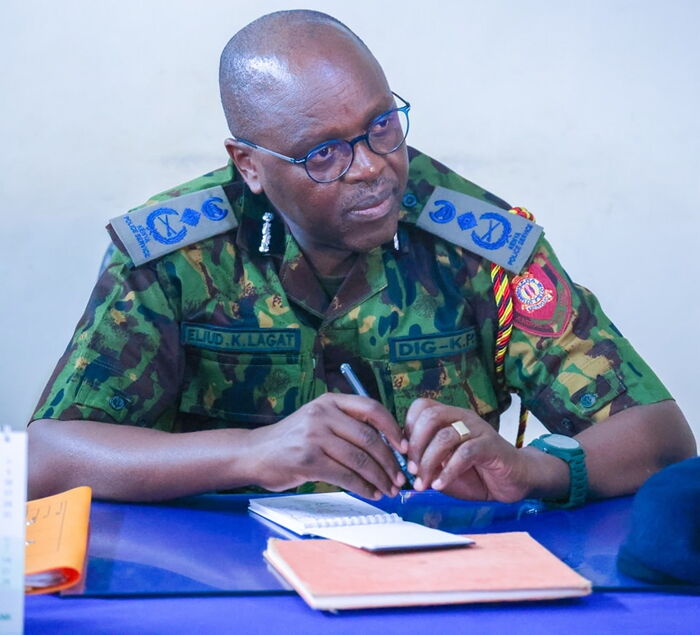The High Court has declined a request by Deputy Inspector General (DIG) of Police, Edward Mbugua Lagat, to dismiss a petition challenging his role in the case surrounding the death of blogger Albert Ojwang.
On Friday, October 3, Justice Chacha Mwita ruled that the court had full legal authority and competence to hear and determine the petition in line with the Kenyan Constitution.
Lagat, through his lawyer Cecil Miller, had argued that the High Court lacked jurisdiction, insisting the matter should instead be heard by the Labour Relations Court. According to Miller, the petition touched on employment and administrative issues relating to Lagat’s position in the police service rather than constitutional concerns.
“What is before you as a petition is an issue relating to employment and an internal decision of the police service. We therefore submit that this court lacks the jurisdiction to hear the petition,” Miller submitted.
However, Justice Mwita disagreed, stating that the issues at hand extended far beyond labour and employment matters. The judge clarified that the petition hinged on constitutional interpretation, specifically whether Lagat’s decision to step aside after Ojwang’s death was legal and in line with constitutional requirements.
The petition, which seeks Lagat’s suspension, challenges the manner in which he stepped aside following the death of Ojwang while in police custody. The petitioner argued that the DIG’s action lacked transparency and was done without a clear legal framework or formal process.
Of particular concern to the petitioner is the fact that Lagat has continued to serve as DIG despite his public announcement of stepping aside to allow investigations. The case raises critical questions about accountability, transparency, and adherence to constitutional provisions within the National Police Service.
Justice Mwita’s ruling now paves the way for the full hearing of the petition, which is expected to set a precedent on how high-ranking officers are held accountable in cases involving public trust and constitutional interpretation.

